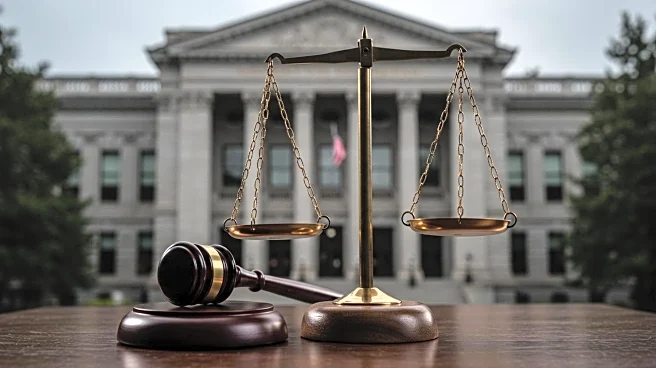What's Happening?
Washington DC has filed a lawsuit against the Trump administration, challenging the legality of President Trump's actions to take control of the city's police force. The lawsuit, initiated by Washington's Attorney General Brian Schwalb, claims that President Trump exceeded his congressional authority by deploying National Guard troops and attempting to federalize the Metropolitan Police Department. The move was justified by Trump as a response to a 'crime emergency,' despite data indicating declining crime rates. The lawsuit highlights tensions between city officials and the Justice Department, particularly after Attorney General Pam Bondi's directive to place the police department under federal control, naming DEA head Terrence Cole as 'emergency police commissioner.'
Why It's Important?
This legal confrontation underscores the ongoing debate over the autonomy of Washington DC and its unique relationship with the federal government. The Home Rule Act of 1973 allows the district to elect its own leaders, yet it remains under congressional oversight. The lawsuit challenges the extent of presidential powers in local governance, raising questions about federal intervention in city affairs. The outcome could impact future governance and the push for DC statehood, affecting the political landscape and the balance of power between local and federal authorities.
What's Next?
The lawsuit will proceed in federal court, where the legality of President Trump's actions will be scrutinized. The case could set a precedent for federal authority over local jurisdictions, particularly in emergency situations. Political leaders and civil rights groups may weigh in, influencing public opinion and policy decisions. The court's decision could either reinforce or challenge the current framework of DC's governance, potentially affecting future legislative efforts regarding DC statehood and autonomy.
Beyond the Headlines
The case raises broader questions about the balance of power between federal and local governments, especially in the context of emergency powers. It also touches on the cultural and political identity of Washington DC residents, who have long advocated for statehood and greater self-governance. The legal battle may influence national discussions on federalism and the rights of citizens in the nation's capital.








